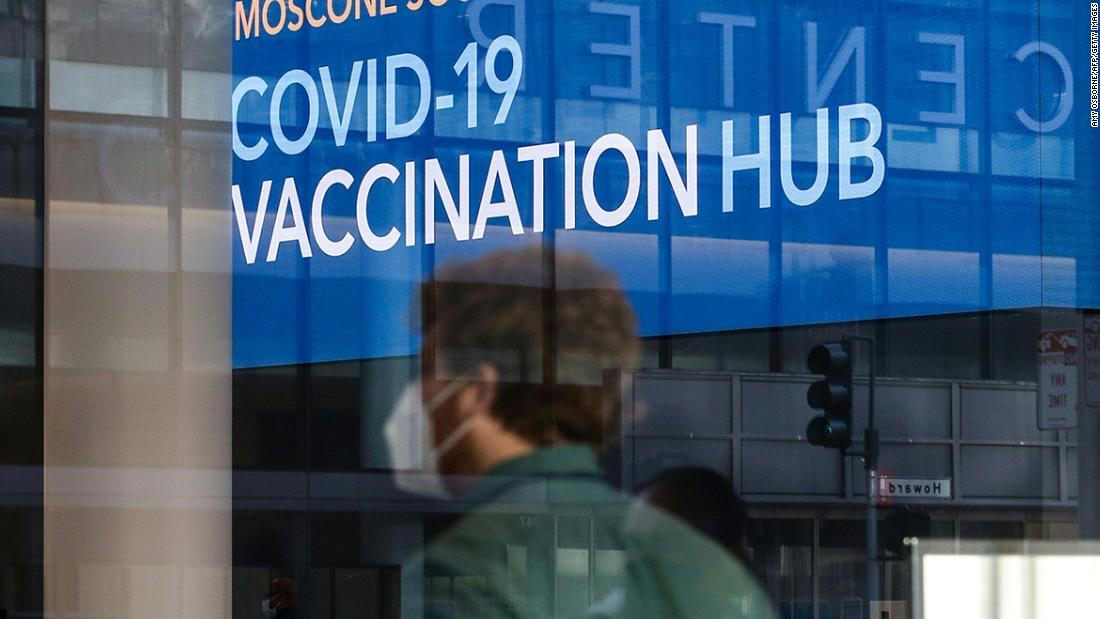Although many states have complained that the supply of doses from the federal government does not meet demand, the pace has accelerated in recent weeks.
Almost all American children live in the red zones
Meanwhile, about 99% of children in the United States live in a county with such high levels of transmission that they are considered a “red” zone under the new CDC school opening guidance, according to an analysis of federal data from CNN.
The CDC has released guidelines, which include “five main mitigation strategies”, for safely returning to on-site school.
The five strategies are, according to the CDC, the universal and correct use of masks, physical distance, hand washing, cleaning facilities and improved ventilation, as well as contact tracking, isolation and quarantine.
But for schools in the red zones, the CDC recommends virtual learning for elementary and high schools and hybrid or reduced attendance for elementary schools. School districts should reevaluate weekly, said the CDC.
Less than 100,000 children in the United States live in a county considered “low” or “moderate transmission”, where the CDC recommends that elementary and high schools be opened for full-time education in person. Most of them are in Hawaii or Washington.
After nearly a year of remote learning, officials are eager to reopen public school campuses – including President Joe Biden, who has promised to reopen most K-12 schools in the U.S. in his first 100 days in office.
But some teacher unions have resisted, in some cases with lawsuits and threats of strike, because of concerns that it is not safe to reopen while many teachers remain unvaccinated.
People with underlying health problems eligible for vaccines in 11 states
In most states, the priority for vaccination against coronavirus was for health professionals and the elderly. But some have started to open eligibility for people vulnerable to the virus because of their underlying health conditions.
The approach, according to a CNN analysis, is not uniform across the country.
In some states, people with underlying health problems are not yet eligible to receive the vaccine – and in the states where they are eligible, there are variations in the conditions that make someone eligible to be vaccinated and whether the paperwork is necessary to confirm that condition.
People with certain comorbidities and underlying conditions are currently eligible to apply for Covid-19 vaccinations in 11 states: New Hampshire, New Jersey, Pennsylvania, Texas, New Mexico, Virginia, Mississippi, Ohio, Missouri, Nebraska and Montana, according to a CNN analysis of public health department websites.
Some of these states have already started vaccinating this group while others are only pre-registering. Within a state, it can vary from municipality to municipality.
California announced on Friday that millions of residents “at high risk for developmental and other disabilities” and those with “serious underlying health problems” will become eligible next month.
The plan, outlined by state health officials at a news conference on Friday, will begin on March 15 and will allow cancer patients, pregnant women and other disabled people to join health professionals, the elderly, teachers and farm workers in line for a vaccine.
The expansion could add up to 6 million Californians to the priority list. It also extends the ages of 65 and over to 16 to 64 in these categories.
But California Health and Human Services Agency secretary Dr. Mark Ghaly warned that the expansion depends on resolving the state of its vaccine deficit.
CNN’s Elizabeth Cohen, Jacqueline Howard, Lauren Mascarenhas, Andy Rose, Samira Said, Naomi Thomas, Konstantin Toropin and Deidre McPhillips contributed to this report.
